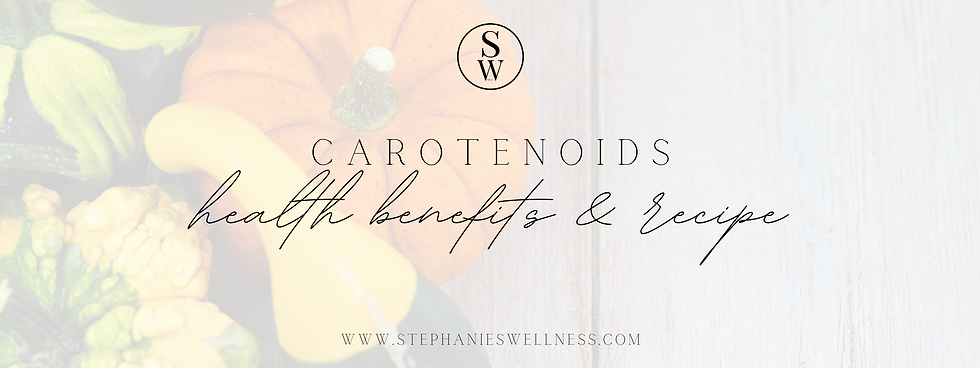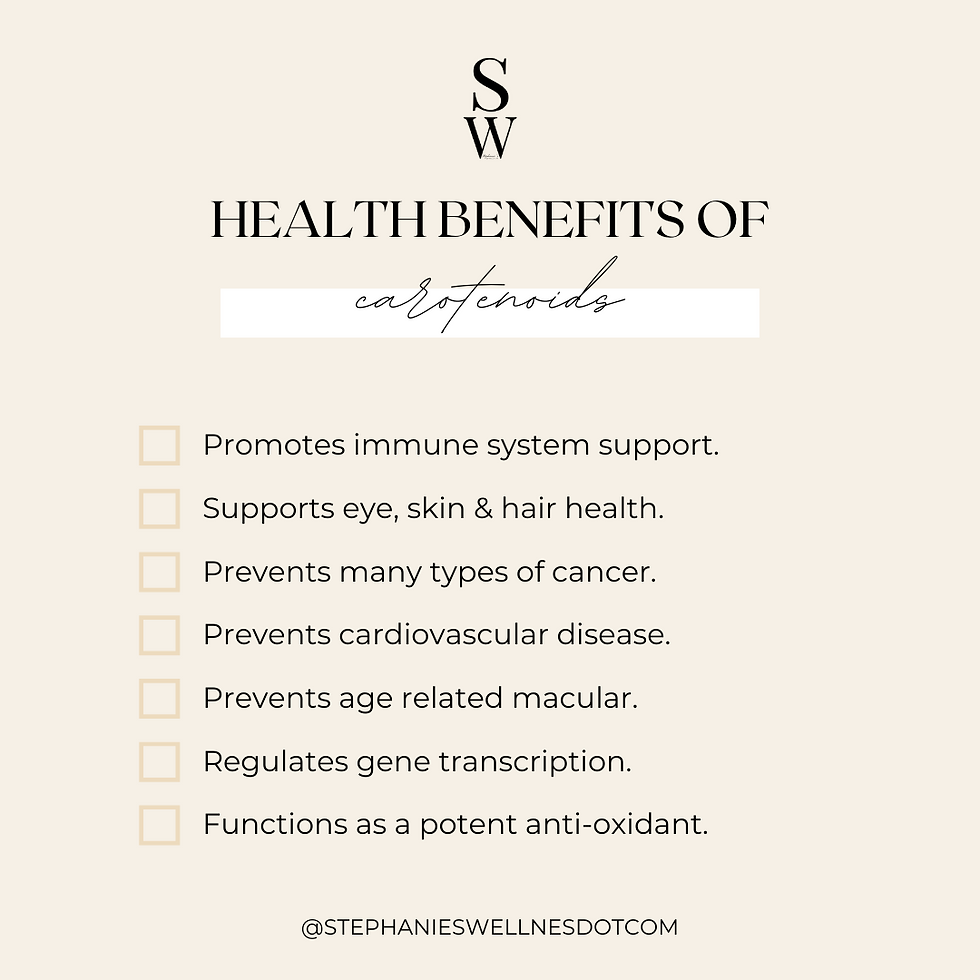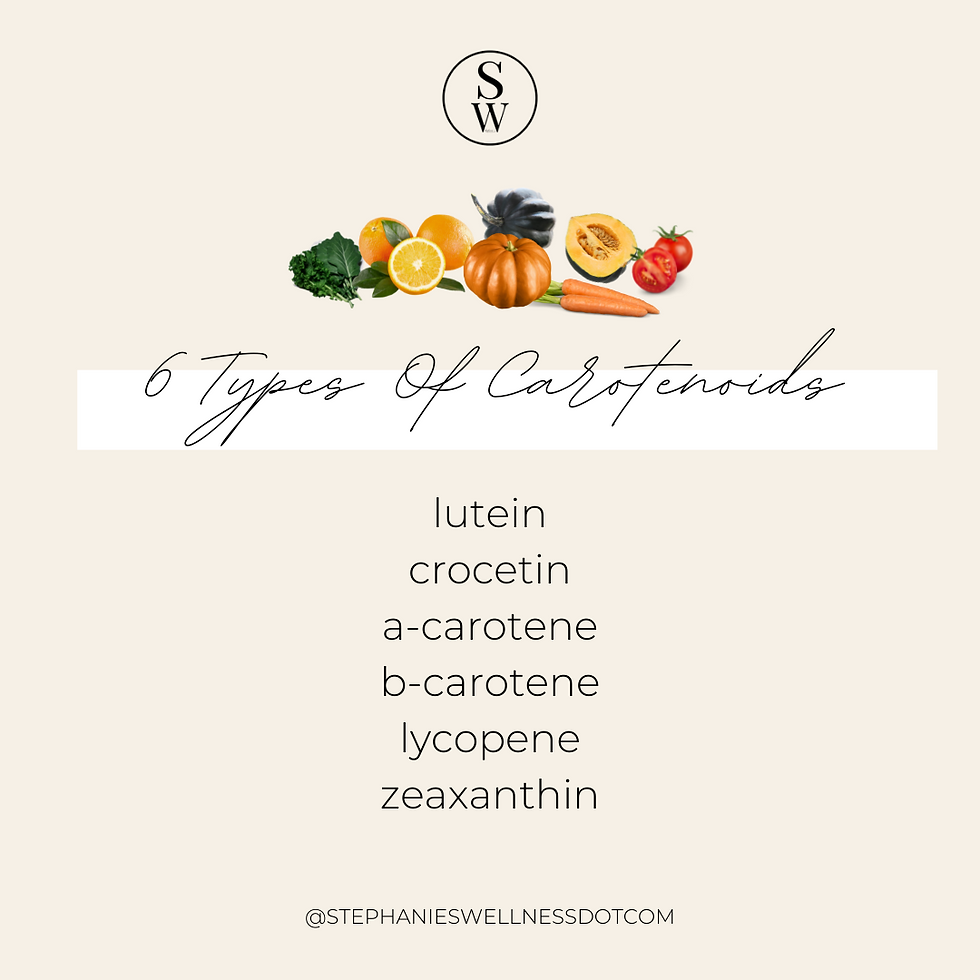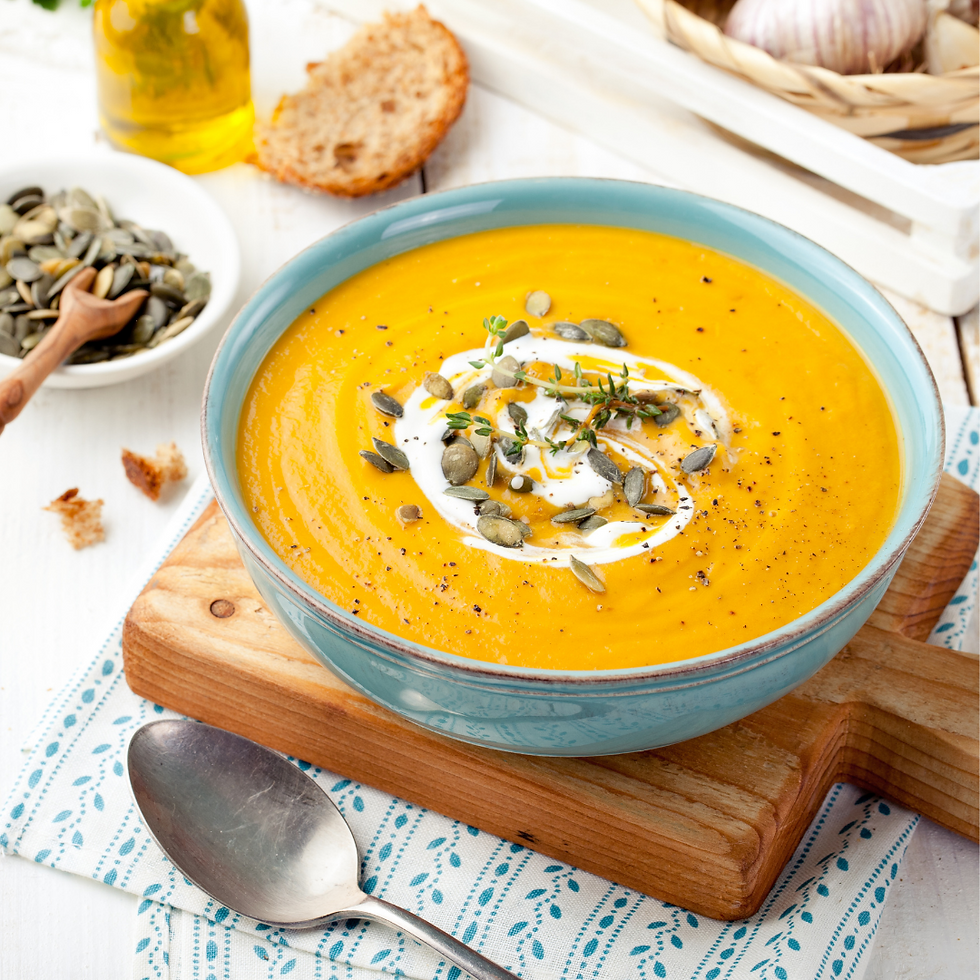CAROTENOIDS, HEALTH BENEFITS & RECIPE
- Stephanie's Wellness
- Aug 20, 2021
- 3 min read

According to “The American Journal of Clinical Nutrition” recent review, carotenoids could reduce the risk of developing age-related cataracts. Carotenoids act as antioxidants, fight cancer, convert into vitamin A by the body (an essential vitamin for vision, growth, and development), have anti-inflammatory properties, and benefit the immune system.
Carotenoids are plant pigments responsible for the bright red, yellow, and orange color in a lot of fruits and vegetables. These pigments play an important role in plant health. When you consume foods that contain carotenoids you get protective health benefits as well. Carotenoids can also be found in algae and bacteria.
For your body to be able to absorb this amazing nutrient, you need to consume carotenoids with fats, otherwise, your body won't absorb it, and tomatoes carotene is better absorbed when it’s cooked. There are over 1,000 types of carotenoids these include alpha-carotene, beta-carotene, beta-cryptoxanthin, lutein, zeaxanthin, and lycopene. Carotenoids are divided are in two groups: xanthophylls and carotene. Xanthophylls are mostly yellow-colored foods while carotenes are orange ones.

Lutein and zeaxanthin
Lutein and zeaxanthin are the only carotenes found in the retina and lens of your eye, which is why studies recommend diets high in this carotene to help slow the development of age-related macular degeneration. These carotenes are responsible for your central vision and protect the retina from blue lights. Lutein and zeaxanthin also have proven to be an antioxidant that helps prevent cholesterol from building up in the arteries and clog them. These carotenes can be found in collard greens, spinach, kale, summer squash, pumpkin, paprika, yellow fruits, and avocados.
Beta-cryptoxanthin
Beta-cryptoxanthin is a good source of vitamin A, however, beta-carotene is double the amount of it, and may be effective in preventing lung cancer. Beta-cryptoxanthin may also help reduce the risk of chronic inflammation such as rheumatoid arthritis. Researches suggest that some things as a glass of orange juice a day could help prevent arthritis. This carotenoid is a great source of papaya, mango, oranges, and yellow foods such as corn and bell peppers.

Beta-Carotene
This is the best source of vitamin A when it comes to carotenoids. Beta-carotene can also protect against sunburn and may help lower the risk of metabolic syndrome, including high blood pressure, high blood sugar, abnormal cholesterol levels, and excess fat around the waist. It is also associated with a reduced risk of lung cancer. However, if smokers consume beta-carotene in supplements shape, their changes in lung cancer risks are extremely high, but if the source is from foods, risks won't increase. The best sources of beta-carotene are cantaloupe, mangoes, papaya, carrots, sweet potatoes, spinach, kale, and pumpkin.
Alpha-carotene
Alpha-carotene produces half the amount of vitamin A as beta-carotene, but still is a source of it. This carotenoid is found in similar foods of the beta-carotene, however, it is less understood yet. However, this carotene has been given more attention and some studies have seen potential longevity benefits on it. Research has also found that high blood levels were inversely associated with cancer death, cardiovascular disease, and other illness causes.
The correlation between high levels of alpha-carotene and a lower risk of death from diabetes and lower respiratory disease was especially high. Studies have shown that people with the highest blood levels of alpha-carotene were less likely to die from heart disease. Good sources of alpha-carotene are pumpkin, carrots, tomatoes, collards, tangerines, winter squash, and peas.
Lycopene
Lycopene is a bright red pigment responsible for the color of tomatoes, guavas, grapefruit s and watermelons. Lycopene can act as a potent antioxidant, it’s been linked to reduced prostate cancer risks, it may promote bone health, and help prevent the development of osteoporosis. Additionally, lycopene may decrease stroke risks in men. Researches had found that of all the carotenoids, lycopene was most effective at deactivating singlet oxygen, a harmful free radical. Lycopene can also be found in papaya, carrots, asparagus, red cabbage, red bell peppers, and parsley.
Even that carotenoids are mostly on red, yellow, and orange fruits and vegetables, they can also be found in other green foods.





Comments